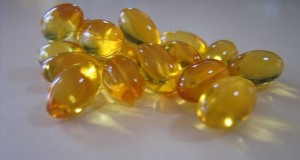
It is important to know about the possible tea tree oil side effects prior to its usage. Due to the numerous benefits of tea tree oil its use has increased in popularity. The oil is used in from shampoos to antiseptics and we should be sure that we are allowed to apply it.
Contents
Skin irritation
Tea tree oil is a source of 1,8–cineole, which is a skin irritant. Large quantities of this compound in products may cause contact dermatitis, a skin irritation in some people. So one of the widely-spread tea tree oil side effects is skin irritation, particularly, if applied to dry areas or broken skin. The symptoms of skin irritation are redness, stinging, inflammation or itching. In some cases, undiluted tea tree oil can cause severe rashes. Before applying tea tree oil it is recommended to perform a skin test.
Allergic reaction to tea tree oil
Tea tree oil can be a reason to mild or severe allergy in those allergic to the plants of the same family. If you are allergic to cloves, eucalyptus or guava, you are at risk for having an allergy to tea tree oil, states the American Cancer Society. The symptoms of mild allergic reaction to tea tree oil include rashes, congestion or itching. They are similar to sunflower oil allergy simptoms. Diarrhea, flushing, light-headedness, vomiting or life-threatening anaphylaxis can be signs of severe allergic reactions and medical support is needed.
When the oil is exposed to air the oxidation products may trigger more severe allergic reaction in comparison with fresh tea tree oil. So the older tea tree oil is the more chances it has to break down into allergic compounds.
SEE ALSO: Are Palm Oil Side Effects Dangerous?
Interaction with medications
One of the most known tea tree oil side effects takes place when tea tree oil is used together with remedies causing skin dryness. In some cases, people are so eager to get rid of acne that they apply tea tree oil together with acne medications, for example, benzoyl peroxide (see in Wikipedia) and salicylic acid. Double effect of these remedies causes excessive dryness, itching, peeling and discomfort.
Hormonal side effects
One possible side effect of tea tree oil is hormonal influence on young boys. There is one reported case of gynecomastia, increased production of breast tissue, in a boy who used a hair gel with tea tree and lavender oil. It suggests that tea tree oil in combination with lavender may change boys’ hormones.
Ingestion side effects
Sometimes tea tree oil is used for treating bad breath, gingivitis and bleeding gums. It is a constituent of toothpastes or mouth washes. However, tea tree oil is very toxic if swallowed and can lead to side effects such as upset stomach, nausea, vomiting, weakness, hallucinations and even blood cell abnormalities, ataxia. Children are highly vulnerable to internal use of tea tree oil so always keep it far away from children and never let them gargle a throat or wash a mouth with tea tree oil.
YOU MAY ALSO LIKE: Is Tea Tree Oil Safe During Pregnancy?
Resistance to antibiotics
As Wikipedia states low concentrations below 4% and especially below 0.25% of tea tree oil don’t kill bacteria and at the same time create selection pressure when bacteria become less sensitive to some antibiotics in vitro.
 Oilypedia.com – Benefits And Uses Of Supplemental and Essential Oils
Oilypedia.com – Benefits And Uses Of Supplemental and Essential Oils 



Pingback: Tea Tree Oil: Side Effects You Should Kn | OilyPedia.com - All about Supplemental And Essential Oils